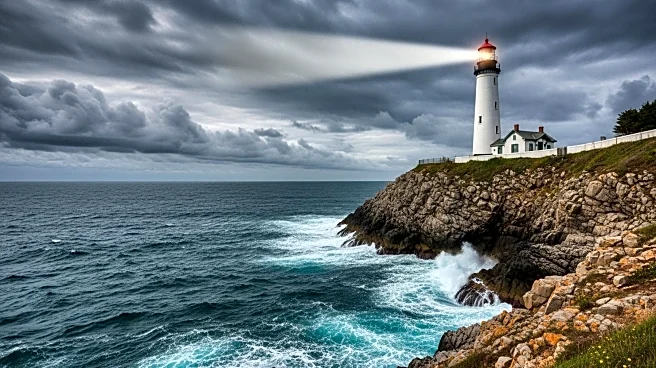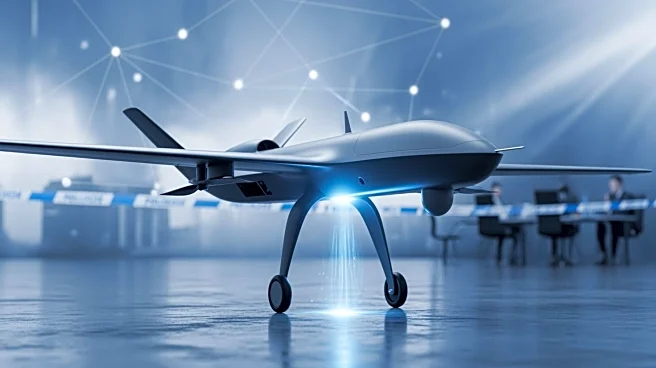What's Happening?
The Marine Accident Investigation Branch (MAIB) has called for a 'radical rethink' of ship lookout practices following a fatal collision in the North Sea. The incident involved the Portuguese cargo ship Solong and the US-flagged oil tanker Stena Immaculate. The collision occurred in patchy conditions without dedicated lookouts, leading to the disappearance of a crew member presumed dead. The MAIB report suggests reevaluating human watchkeeping roles in the digital age, citing the need for improved monitoring systems.
Why It's Important?
The call for a reevaluation of lookout practices reflects broader concerns about maritime safety in increasingly automated environments. The incident underscores the potential risks of relying solely on human watchkeepers, who may be prone to distraction or under-stimulation. Implementing automated systems could enhance safety and prevent future collisions, impacting international maritime regulations and practices. The shipping industry, particularly vessels navigating busy waters, may need to adapt to new safety standards.
What's Next?
The MAIB's recommendations may lead to discussions within the International Maritime Organization (IMO) regarding changes to safety regulations. Any proposed changes could take years to implement, requiring international consensus. The Maritime and Coastguard Agency (MCA) may issue urgent safety rulings for UK-flagged ships, potentially influencing global maritime practices. The trial of the Solong's captain for gross negligence manslaughter may also impact future safety protocols.
Beyond the Headlines
The incident highlights the ethical and operational challenges of balancing human oversight with technological advancements in maritime safety. The potential shift towards automated systems raises questions about the role of human judgment and accountability in preventing accidents. Long-term, this could lead to a cultural shift in the shipping industry, prioritizing technological solutions over traditional practices.









